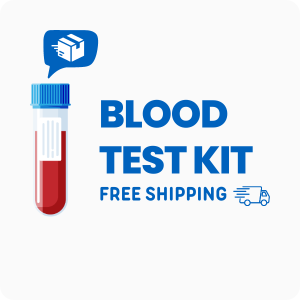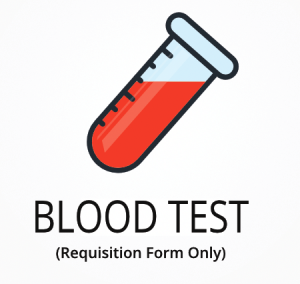Ordering the Apolipoprotein A-1 Test
Ordering the Apolipoprotein A-1 Test can help assess your risk for heart disease by measuring the levels of a specific protein in your blood. Interestingly, Apolipoprotein A-1 is a major component of HDL cholesterol, often referred to as “good” cholesterol, which plays a role in removing excess cholesterol from the bloodstream.
When you order this test, you can expect the following benefits:
- Helps evaluate your risk for cardiovascular conditions.
- Provides insight into your cholesterol management.
- Assists in monitoring the effectiveness of lipid-lowering treatments.
- Offers a detailed look at your lipid profile.
- Supports your healthcare provider in making informed decisions.
Who Should Consider the Test
People who have a family history of heart disease might find this test particularly useful. For example, if someone in your family has experienced heart issues, knowing your Apolipoprotein A-1 levels can be a proactive step in managing your own heart health.
Consider ordering this test if you:
- Have a family history of heart disease.
- Are managing high cholesterol levels.
- Are undergoing treatment for lipid disorders.
- Have been advised by your doctor to monitor your cholesterol.
- Are curious about the role of proteins in cholesterol management.
Knowing your Apolipoprotein A-1 levels can help you and your healthcare provider make informed decisions about your heart health. Delaying this test might mean missing out on important information that could guide your treatment plan.
How to Prepare for the Test
Fasting for 9 to 12 hours is required before taking the Apolipoprotein A-1 Test. It’s important to follow any instructions from your doctor or healthcare professional to ensure the test results are as accurate as possible.
Labs Included When Ordering Your Apolipoprotein A-1 Test
| Test Name | Reference Range | Significance | Low and High Levels of Apolipoprotein A-1 |
|---|---|---|---|
| Apolipoprotein A-1 | 120-180 | Apolipoprotein A-1 is a key protein in HDL cholesterol, which helps remove cholesterol from the bloodstream. It plays a role in reducing the risk of heart disease. | High levels mean a lower risk of heart disease.
Low levels mean a higher risk of cardiovascular issues. |
Lab reference values are subject to change. Refer to the Quest Diagnostics lab test directory for current ranges.
Apolipoprotein A-1 FAQ
Is there Apolipoprotein A-1 testing near me?
To find nearby locations for Apolipoprotein A-1 testing, use the patient service center locator. This is especially helpful if you need a convenient site due to mobility issues or time constraints.
What is the cost of the test?
The cost of the test includes all fees, such as sample collection at patient service centers. It’s worth ordering to understand your heart disease risk better.
How often should I retest?
Retesting every 6 to 12 months is recommended to monitor changes in your cholesterol profile. Regular testing helps track the effectiveness of any treatments you may be undergoing.
How accurate is the test?
The Apolipoprotein A-1 Test uses immunoturbidimetric methods to measure protein levels accurately. TrueHealthLabs.com partners with CLIA-certified laboratories to uphold rigorous testing standards for dependable results.
Medical Review Board
Reviewed by Jeff Donohue M.D. from Body Logic and Brady Hurst DC, CCCN. Written by True Health Lab’s team of editorial health contributors.
Disclaimer: This information is for educational purposes only and not intended as medical advice. Consult your healthcare provider for personalized guidance.
Why Customers Trust True Health Labs - What People are saying
Also rated 4.6 out of 5 based on 3452 ShopperApproved reviews- See all TrueHealthLabs.com reviews.








